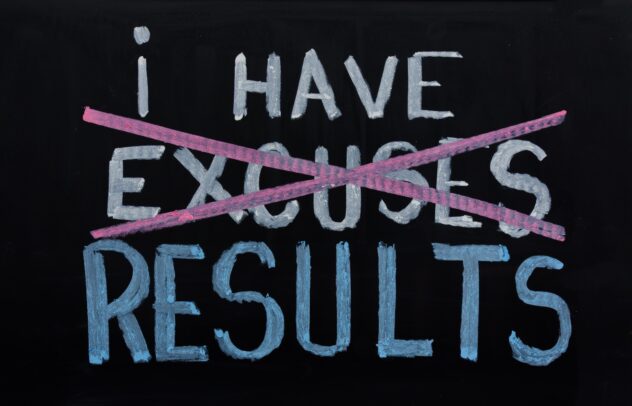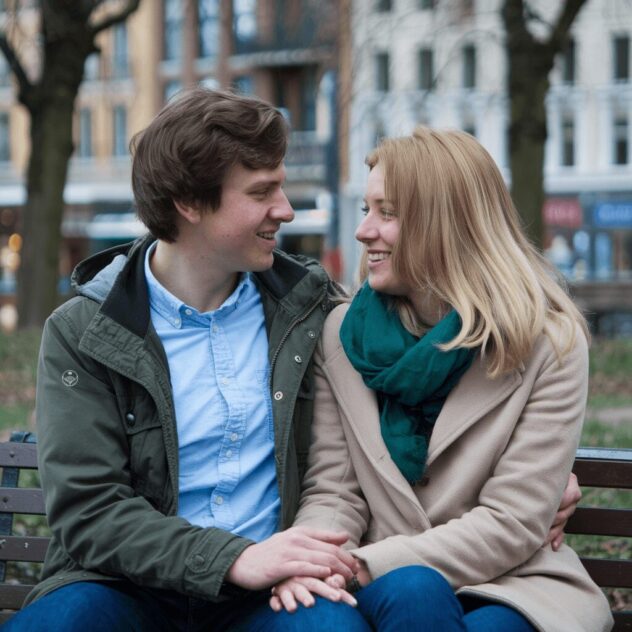How to Navigate a Relationship with ADHD: Navigating the Rollercoaster with Ramsi
Ramsi broke my heart. I had never been so deeply in love with someone who could also make me feel so much frustration and forced me to navigate a relationship with ADHD.
Relationships are hard enough on their own. Add neurodivergence into the mix, and suddenly you’re not just working through typical ups and downs, but you’re juggling a whirlwind of impulsivity, emotional intensity, and the occasional mysterious late-night dating profile appearances. My time with Ramsi, a man whose ADHD-fueled creativity was matched only by his knack for causing chaos, was nothing short of an adventure.
This isn’t a story about getting it all right, nor is it a guide to fixing someone else. It’s about navigating the beautiful mess of loving someone with ADHD (and a few other likely traits), finding the courage to set boundaries, and ultimately realising that sometimes, the healthiest thing you can do is let go, not of love, but of the illusion of control.
Unlock peak brain performance with science-backed biohacks. Join free now & get your guide for just £4.99 (45% off)!

A Love That’s Anything but Ordinary
Let me start by saying this: when Ramsi loved, he loved big. From grand romantic gestures to hours spent painstakingly painting my favourite character, he poured his heart into showing me how much I mattered to him. And in those moments, I never doubted his sincerity. But living with Ramsi also meant living with the unpredictability of ADHD. Dates were missed, plans fell apart, and time, well, time didn’t seem to exist in Ramsi’s world.
Take the six-hour “getting ready” sessions, for example. Ramsi would meticulously pick out an outfit, change his mind, and then lose track of time entirely, leaving me waiting and wondering whether we’d even make it out the door. It wasn’t laziness or a lack of care, it was just how his brain worked. His hyperfocus, which could make him a creative force to be reckoned with, often came at the expense of everything else.
When Love Turns into a Hurricane
If there’s one thing I learned about Ramsi, it’s that his emotions didn’t come in waves, they came in hurricanes. One moment, we’d be laughing and planning our future; the next, he’d spiral into anger or sadness over something I hadn’t even realised I’d done. At first, I thought these reactions were personal, that I’d failed him somehow. But as time went on, I began to see the pattern. Ramsi wasn’t angry with me; he was overwhelmed by his own emotions.
This emotional dysregulation is common in neurodivergence, often overlapping with traits of other conditions like borderline personality disorder. For Ramsi, every slight, real or imagined, was magnified, and his responses could be harsh. If he felt hurt, he might lash out with words that cut deep, only to regret them later. These moments were some of the hardest to navigate because they often left me questioning not just the relationship, but myself.
I spent too many nights in bed alone when he went for a ‘walk.’ Sometimes I thought he needed space to calm down; other times, I wondered if I’d driven him away. Those nights left me feeling small, doubting my worth, and questioning if I was the problem.
Trust in a Neurodivergent Relationship
Ah, trust. The foundation of any good relationship. Or at least, it should be. With Ramsi, trust felt more like quicksand, always shifting beneath my feet. There were the deleted messages, the online profiles, and the stories that didn’t quite add up. When confronted, Ramsi was adamant that he’d never cheated, and he was convincing. Too convincing.
Looking back, I don’t know whether Ramsi ever strayed. But what I do know is that his neurodivergence made trust tricky, not because he was inherently untrustworthy, but because his impulsivity and need for validation often created doubt. And doubt, as anyone in a relationship can tell you, is a slow poison.
Accountability – A Work in Progress
One of Ramsi’s biggest challenges, and the one that tested my patience the most, was accountability. If we had a disagreement, he’d often deflect or blame my reaction rather than acknowledge his own role in the conflict. It was maddening, especially because accountability is something I value deeply. I don’t mind admitting when I’m wrong, in fact, I’m usually the first to apologise. But Ramsi seemed allergic to those two little words: “I’m sorry.”
What I eventually realised is that accountability isn’t just about saying the right things. It’s about being willing to reflect on your actions, own your mistakes, and make an effort to grow. For Ramsi, this was a steep learning curve. Whether it was his ADHD, emotional dysregulation, or something else at play, taking responsibility didn’t come naturally to him. But the few times he did? They were glimmers of hope that reminded me why I’d stayed as long as I had.
Can Love Heal All?
Ramsi and I often talked about wellness. He agreed to try supplements like B3 (niacinamide) to help with focus and even joined the gym, though showing up was another story. He started journaling, meditating (once), and making small attempts to regulate his emotions. But the truth is, change is hard, especially when you’re working against a lifetime of habits and coping mechanisms.
Wellness isn’t a one-size-fits-all solution, and it certainly isn’t a quick fix. It’s a daily commitment to doing the work, even when it’s uncomfortable. Ramsi took small steps, and for that, I give him credit. But I also had to accept that his journey was his own, and I couldn’t walk it for him.
What I Learned from Loving Ramsi
If there’s one thing Ramsi taught me, it’s that loving someone with neurodivergence is equal parts challenge and gift. It forces you to stretch your patience, nurture your empathy, and embrace adaptability. But more than that, it makes you confront your own limits, what you can give, what you need, and where to draw the line between love for someone else and love for yourself.
Here are a few lessons I’ll carry with me:
- Set Boundaries Early and Stick to Them – Loving someone doesn’t mean losing yourself. I learned the hard way that boundaries aren’t barriers; they’re lifelines. They protect your well-being and help you show up as the best version of yourself.
- Trust Actions, Not Just Words – Ramsi often told me how much he loved me, how he wanted to grow and be better, but words alone aren’t enough. True love is reflected in effort and progress, not promises left unfulfilled.
- Rediscover Yourself – For too long, I measured my happiness against Ramsi’s moods, his storms, and his fleeting moments of calm. I lost sight of who I was outside the relationship. Now, I know that to fully love someone else, I have to first love myself.
- Commitment Goes Both Ways – A relationship thrives on mutual effort. Ramsi’s journey is his own, but until I see him commit to his wellness, to taking real steps toward progress, I can’t allow myself to be caught in his whirlwind.
- Know When to Let Go – Sometimes, the greatest act of love is letting go, not because you’ve stopped caring, but because you value yourself enough to step away from what’s not healthy.
Moving Forward: How to Navigate a Relationship With ADHD
As Ramsi moves in with a friend and I start the process of rebuilding, I’ve found myself reflecting on everything we shared, the good, the bad, and the utterly bizarre. Loving Ramsi wasn’t easy. It tested me in ways I never expected, but it also gave me moments of joy, laughter, and a connection I’ll never forget.
I love Ramsi. I love his creativity, his spontaneity, his way of seeing the world with wonder. But love isn’t always enough. For now, I need to be alone, to rediscover who I am, and to become the best version of myself I can be. I need to rebuild my confidence, my sense of identity, and my happiness, on my own terms.
And Ramsi? I hope he finds his way. I hope he commits to his wellness, not for me, but for himself. If one day I see true progress, real, tangible steps forward, and glimmers of the relationship we could have, maybe there will be a path back to each other. But until then, I’m choosing to let go. I was not able to learn how to navigate a relationship with ADHD. But then, I had my own path to follow.
If you’re in a relationship like this, know that you’re not alone. There’s no perfect road map for loving someone with neurodivergence, but there is always room for growth, for both of you. Sometimes, that growth happens together. And sometimes, it happens apart.
Join Our Community of Neurodivergent Champions
Looking for a space to share your experiences or ask for advice? Join the Herbal Biohacker community, where parents, caregivers, and neurodivergent individuals come together to exchange ideas, celebrate wins, and find support. Connect with like-minded people and specialists who are passionate about empowering neurodivergence in all its forms. Maybe you’ve had your own encounter with your own version of Ramsi and want to talk about it with others.
Let’s navigate this journey together, because no one should have to go it alone.







This heart-felt story is very common. I hope you’ve found peace Adam and I hope Ramsi learns to love himself.